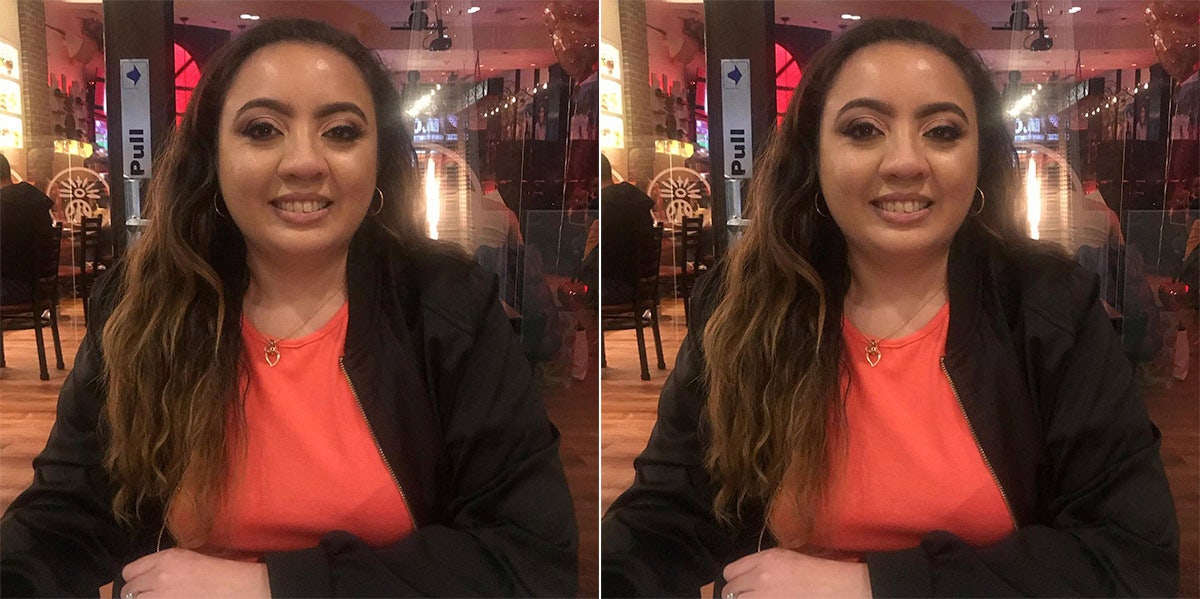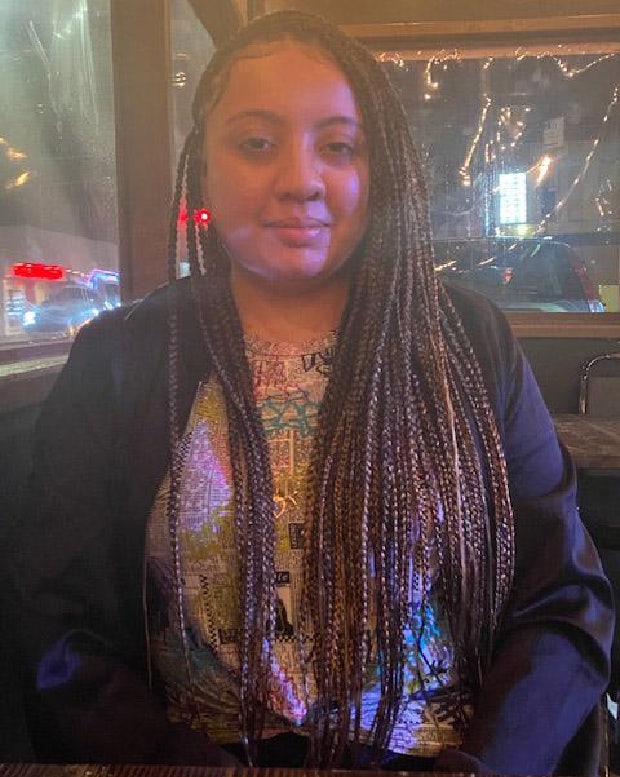How I Reclaimed My Puerto Rican Roots By Embracing My Natural Hair
It was time to reclaim my Puerto Rican roots, and I finally did.
 Courtesy of the author
Courtesy of the author Your hair is your crown. It is a reflection of your history and who you are. But if you’re like me, you’ve had a complicated relationship with it.
Growing up around whiteness in a Catholic school in the Bronx as an Asian-American Latina, my hair did not (and still does not) conform to people’s expectations of what it should look like.
So naturally, I got made fun of.
People would call my natural hair a “bush” or just plain “messy.” They would laugh at my hair and say theirs was much better than mine.
Because of these comments, I’d come home crying. One day, I was so fed up that I took a pair of scissors and cut my hair. This left me with two bald spots on both sides of my head for months. I would carefully style my hair and wear a hat so I wouldn’t get made fun of even more.
My mother tried to resolve this issue by having my hair straightened. And when it was straightened, the comments would stop.
The straightening would continue for years until my hair became damaged and I lost my natural curls and waves.
As I grew older, the comments on my hair didn’t stop. In fact, they got worse. In college, when I was working in an upscale building, this older white woman would come up to me, touch my hair without my permission and say my hair was “dry and disheveled.”
My natural hair was something I grew to be ashamed of because of the way society treated me in relation to it.
There was even one point where I both straightened and bleached my hair because I thought it was the right thing to do. But it only led to more damage.
At one point, I didn’t even know what to do with my hair at all, so I’d either just flat iron it or put it up in a ponytail.
One day, I was scrolling through Instagram and saw a lot of my Puerto Rican friends with their natural hair or braids.
They had embraced their hair and looked happy and proud of it. I really admired them.
And finally, something clicked: Why wasn't I happy and proud of my natural hair too?
My hair tells a story of my history and of my heritage. I should be proud of that.
I decided it was finally time to stop conforming to western beauty standards and embrace the beauty that I already had.
After months of trying numerous products and vowing to stop flat-ironing my hair, my hair grew healthier and wavier than ever.
It was the first time I’ve ever really felt proud of my own hair and really embraced it.
I wore it naturally, and for the first time, got compliments on it. I had never felt so confident in my natural hair before.
After growing out my hair, it was time for another hair adventure: braids.
I was nervous at first because I was aware of the many white folks who were accused of cultural appropriation for wearing braids. And as a light-skinned brown woman, I want to be aware.
However, growing up, I saw plenty of Puerto Ricans wear braids. They were always vocal about reclaiming their African heritage. So why couldn’t I do the same?
Wearing braids for the first time was incredible.
 Photo courtesy of the author
Photo courtesy of the author
I never felt so empowered before. I felt so free.
After discovering the possibilities of what I could do, I realized I wasted so much time hating my hair when I could’ve spent time loving and embracing it.
I’ve decided to never make that mistake again. Moving forward, I will treat my hair with the utmost respect and care in the world.
My hair is a physical representation of who I am. My hair defines who I am when the world tries to tell me otherwise.
My hair is worthy, my hair is valuable and most importantly, my hair is deserving.
And so am I.
Angelique Beluso is a sex educator and writer who covers feminism, pop culture and relationship topics. Follow her on Twitter for more.

